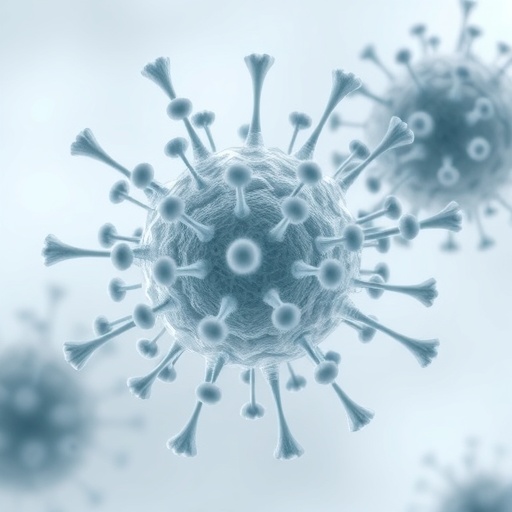A visionary research initiative is underway at the Carl R. Woese Institute for Genomic Biology, University of Illinois Urbana-Champaign, in partnership with leading industrial and academic institutions including Ginkgo Bioworks, Baylor University, University of Minnesota, Oregon State University, and Oregon Health & Science University. This ambitious five-year project, titled “Microbe/phage Investigation for Generalized Health TherapY (MIGHTY),” funded by the Advanced Research Projects Agency for Health (ARPA-H), seeks to revolutionize how we approach microbial health by leveraging bacteriophages—viruses that specifically infect bacteria—as precision tools to manipulate the human microbiome and promote holistic health outcomes.
Traditional antibiotic therapies have served as the cornerstone of bacterial infection management for decades. However, their broad-spectrum nature indiscriminately eradicates beneficial bacterial species critical to maintaining the microbiome’s delicate balance. This collateral damage disrupts symbiotic microbial communities, often precipitating dysbiosis, a microbial imbalance implicated in numerous chronic health conditions. Compounding this challenge is the relentless rise of antibiotic-resistant bacterial strains, a dire threat to global health security that underscores the urgent need for innovative antimicrobial modalities.
Phages represent a compelling alternative due to their inherent specificity—they infect and lyse targeted bacterial hosts without harming commensal microbiota. Despite this precision, clinical translation of phage therapy has been hampered by the time-intensive nature of isolating effective phages and the rapid evolutionary responses of bacteria leading to resistance against single-phage interventions. The MIGHTY project aims to surmount these barriers by establishing a scalable platform for high-throughput isolation and characterization of both bacteria and their phages from diverse environments.
Central to this endeavor is the integration of mechanistic biological modeling coupled with cutting-edge artificial intelligence and machine learning algorithms. This synergistic approach will empower researchers to predict and design phage cocktails with optimized efficacy, targeting resistant bacterial populations while preserving microbial ecosystem integrity. Such technology-driven methodology promises to dramatically accelerate the identification of therapeutic phage combinations, which is crucial for overcoming bacterial resistance mechanisms and ensuring sustained antimicrobial action.
The initial focus of the MIGHTY initiative centers on the oral microbiome, a complex ecosystem wherein pathogenic bacteria contribute not only to dental caries and periodontal disease but also predispose individuals to systemic illnesses such as cardiovascular disease, Type II diabetes, and certain cancers. By designing accessible, cost-effective phage-based interventions—envisioned as user-friendly oral delivery systems like chewable gummies—the project seeks to fundamentally transform preventive and therapeutic strategies for oral health.
Lead investigator Asma Hatoum-Aslan emphasizes the broader vision: “Advancing phage therapeutics into mainstream clinical practice is our ultimate objective. Beginning with oral applications, the platform we develop will catalyze innovations directed at gut, metabolic, and autoimmune diseases.” The multidisciplinary research team at Illinois combines expertise spanning bacterial genetics, phage biology, microbiome ecology, computational sciences, and machine learning to realize this vision.
Collaboration with Ginkgo Bioworks adds a formidable technological edge, leveraging their ultra-high-throughput screening capabilities to expedite phage discovery processes. At the same time, Baylor University contributes chemical probes that enable activity-based assessments of microbial interactions, enriching the platform’s mechanistic insights. This convergence of expertise and technology represents a paradigm shift in the precision engineering of microbiome-targeted therapies.
The importance of this work is reflected in the enthusiastic endorsement by academic and industrial partners alike. Cari Vanderpool from the University of Minnesota underscores the transformational potential: “By harnessing the microbial ecosystem with precision phage therapeutics, we stand on the cusp of developing treatments that not only eradicate harmful pathogens but also support sustainable health improvements.”
Phage-based therapeutics could ultimately redefine antimicrobial strategies by circumventing the pitfalls of antibiotics, including off-target effects and resistance development. This research thereby addresses a critical public health imperative through innovative science, promising profound implications across medicine.
Looking ahead, the MIGHTY project aims not only to deliver tangible clinical products but to establish a versatile platform adaptable to numerous microbiome-associated conditions. By marrying biological insight with computational power, the project exemplifies a forward-thinking approach to health innovation aligned with ARPA-H’s vision of transformative, high-impact biomedical research.
As the scientific community and public eagerly anticipate advancements in microbiome medicine, this initiative heralds a new era where bacteriophages serve as precision instruments for sculpting microbial ecosystems, enhancing health, and combating antibiotic resistance in a sustainable way. The outcomes from this research could ultimately elevate phage therapy from a niche intervention to a mainstream medical paradigm.
Subject of Research: Precision phage therapy for manipulation of the human microbiome to promote health.
Article Title: Not provided.
News Publication Date: Not provided.
Web References: Not provided.
References: Not provided.
Image Credits: Hatoum-Aslan lab, University of Illinois Urbana-Champaign.
Keywords: Health and medicine, Life sciences, Human health, Genomics, Machine learning, Phagocytes.




